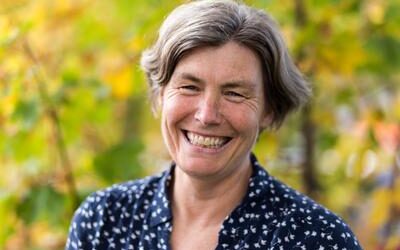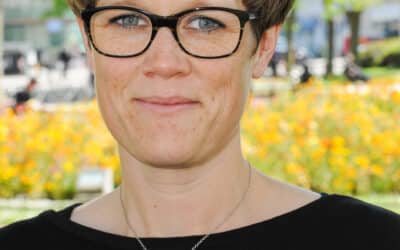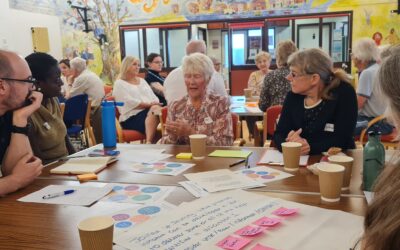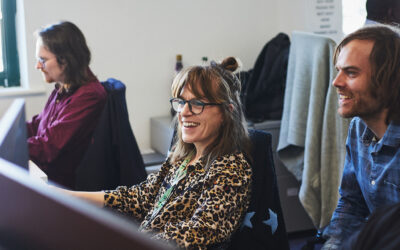As part of Rethinking Our Health, we hosted our first community pain drop-in — a chance for people to talk things through early, get reassurance, and feel more confident about managing pain. This blog shares what we learned, and why having the right conversation at the right time really matters.
The post The Health Builder difference: Redefining patient involvement appeared first on Here.
]]>The Health Builder difference: Redefining patient involvement
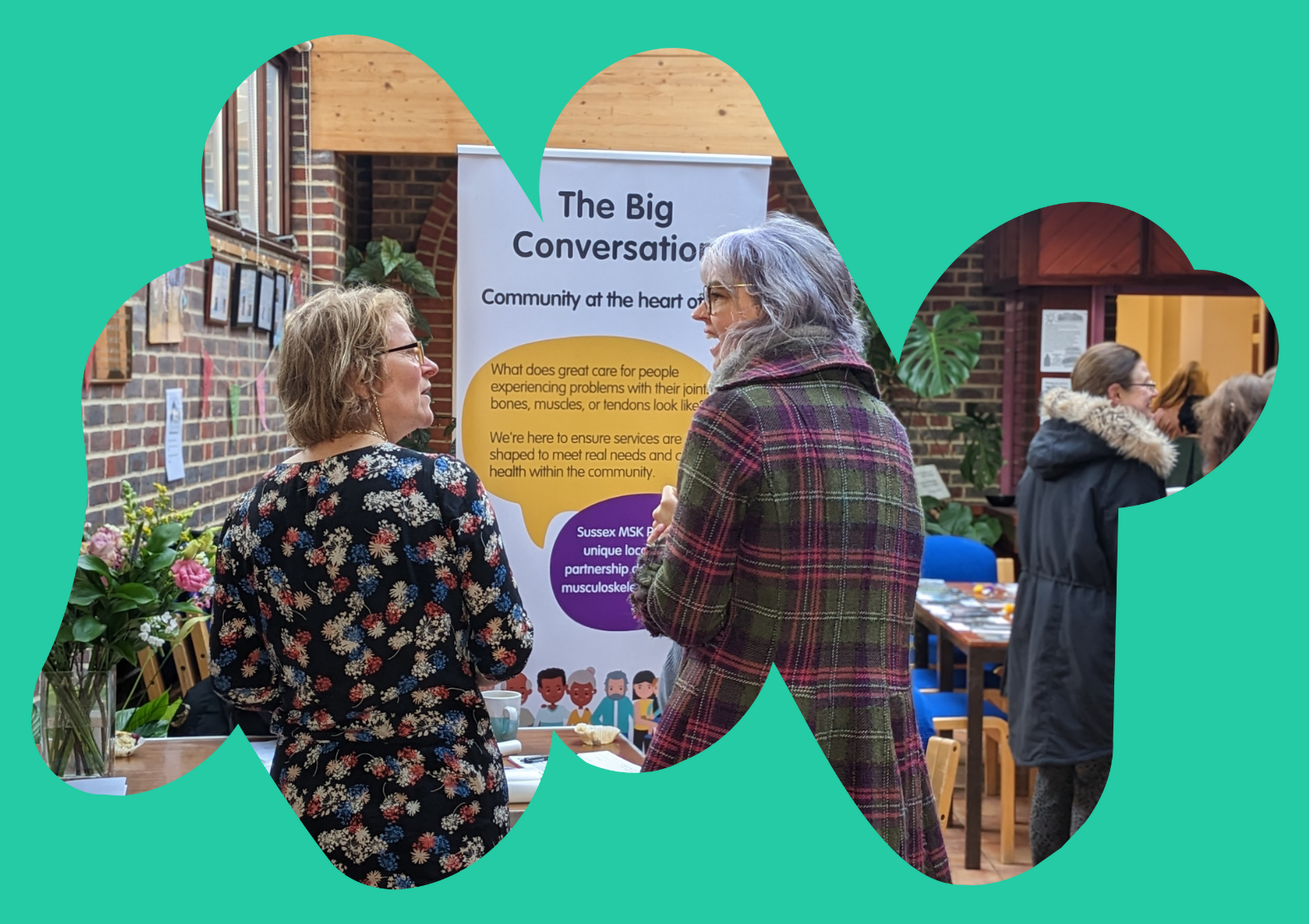
At Here, we believe that designing exceptional care means working in true partnership with the people who use our services. In this blog, Health Builder Norman Webster shares how our unique approach puts lived experience at the heart of service design and delivery.
Designing and delivering exceptional care surely has to include those for whom the care is being designed and delivered? “Do with” rather than “Do to” has to be the way forward to improve outcomes and shift responsibility from clinicians to a shared responsibility with patients.
Patients and carers are involved as Health Builders in this design and delivery journey at Here.
What is a Health Builder?
What is a Health Builder, I hear you ask.
We are a small team of people with various long-term health conditions who work across services at Here, including Sussex MSK Health: Brighton & Hove and West Sussex. We are involved in patient empowerment initiatives like Shared Decision Making and Personalised Care. Our work spans advising on policy documents and public-facing communications, observing clinics to provide feedback for clinicians’ Continuing Professional Development, and helping improve pathways in areas such as stroke aftercare. One of our team members has even provided the voice-over for our informative patient videos.

The Health Builder team is unique in that we are paid according to NHS guidelines for honoraria and we are involved in areas of work as true partners in creating exceptional care.

Holding space in service design
We are confident in holding our space at the table when important, exceptional care service design conversations happen. We know one another and can speak up for each other in these spaces. We hold regular “Big Conversations” in community settings to gather the views and feelings of our communities. We explore current themes in health care delivery in local communities. We explore how people currently access our services and what could make the experience smoother and more accessible for everyone. We do this so that we can represent them in the policy and governance decisions as they are made.
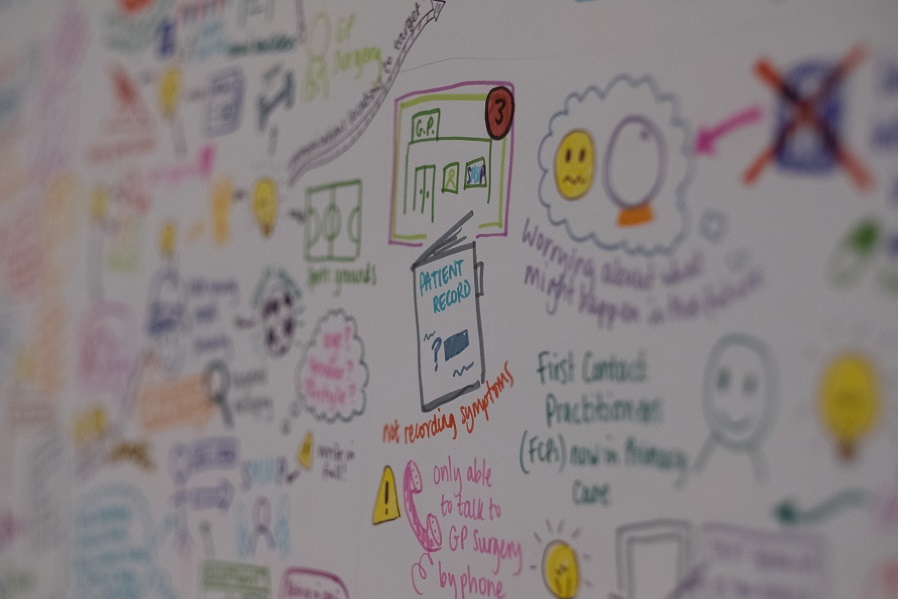
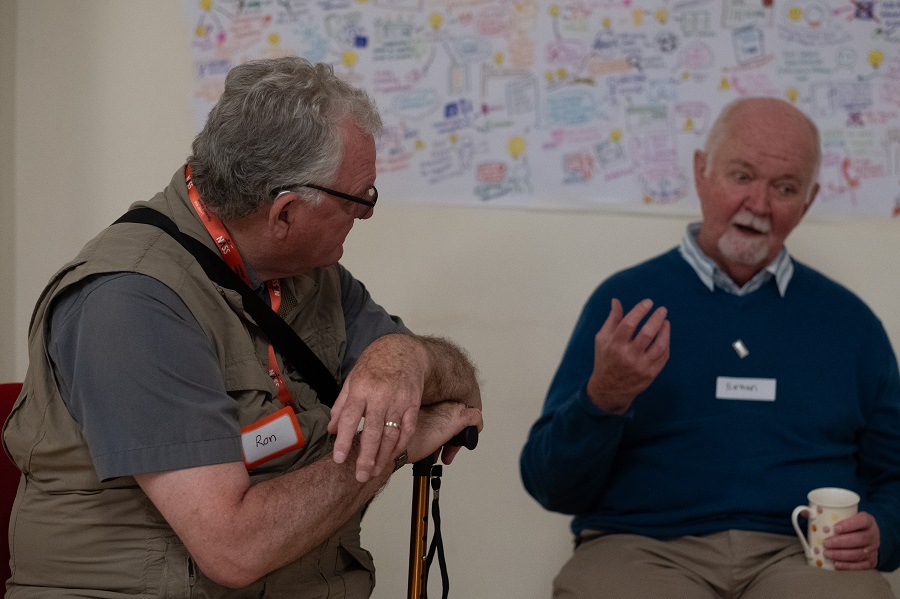
Building accountability into new governance structures
There is a formal route of reporting our work through the Clinical Quality Oversight Group. This is a new group set up following the creation of the Sussex MSK Health: Brighton & Hove and West Sussex in December 2024. It is vital that, during this period of change within our service, we put patient experience at the heart of building this new MSK service with colleagues from across Brighton & Hove and West Sussex.
More than a tick-box: meaningful involvement
The Health Builder team is unique in that we are paid according to NHS guidelines for honoraria and we are involved in areas of work as true partners in creating exceptional care. We are also unafraid to point out inadequacies in service creation and delivery. We are not simply a group of people with lived experience, wheeled out when “consultation” is required, as part of a tick box exercise.

Our priority is providing community health and networking events to build long-term and meaningful relationships where those communities feel safe in expressing their health interactions with NHS services.

Valuing local and cultural connections
We value community connections and are active members of groups such as Crawley Community Action, Community People, West Area Health Forum and Voluntary Action Adur and Chichester.
The delivery of services to marginalised groups is important to us. We have facilitated health events with the Gurjar Hindu Indian community, Crawley Islamic Centre and Masjid, West Hove Health Forum and others. Apart from providing on-site health care, we are keen to hear the views of local communities. We provide feedback information via the Clinical Quality Oversight Group.
Listening, acting and learning through feedback
Our priority is providing community health and networking events to build long-term and meaningful relationships where those communities feel safe in expressing their health interactions with NHS services. Sometimes these conversations can be difficult, but we value and act upon all feedback through our community engagement efforts.
One example of this in action is our work to improve stroke pathways. Health Builders collaborated with clinicians and service leads to gather and reflect the real experiences of people who had accessed stroke aftercare services. Through community conversations and targeted engagement, we identified areas where patients and carers felt unsupported, particularly in transitions between acute care and community rehabilitation. Our insights helped to shape clearer signposting, better continuity of care, and more personalised support for stroke survivors and their families.
Our ultimate aim is to seek out marginalised groups and ensure members of those groups begin to feel that care is accessible and safe for them.
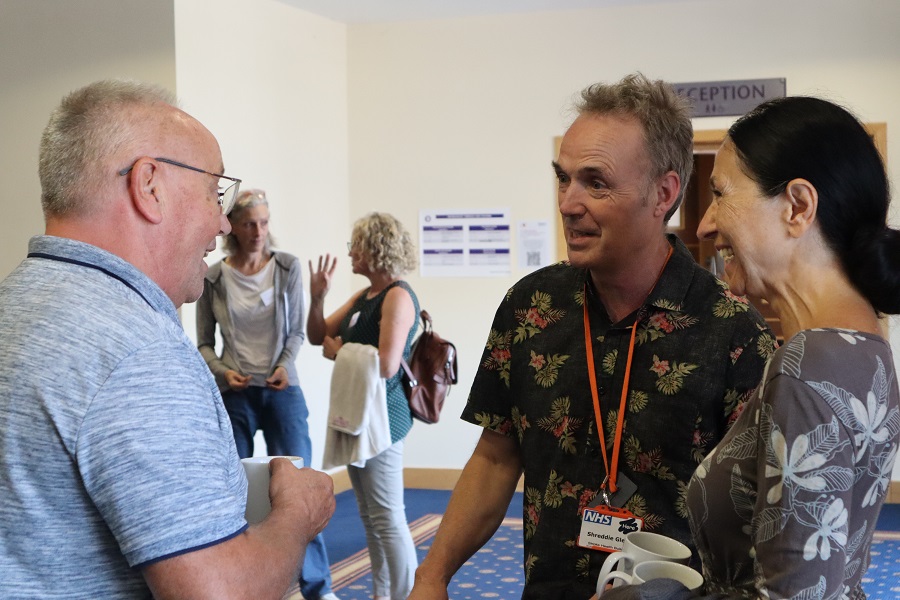
Why Health Builders matter more than ever
The NHS has been under immense financial pressure for years. Rising staffing, medicines, energy and fuel costs, a growing maintenance and estates backlog and the post-pandemic situation have tightened the NHS’s purse strings. The people in charge are forced to make tough decisions to balance the books. It is ever more important that patients derive maximum benefit from each interaction with the NHS and that they are treated in the most cost-effective ways possible.
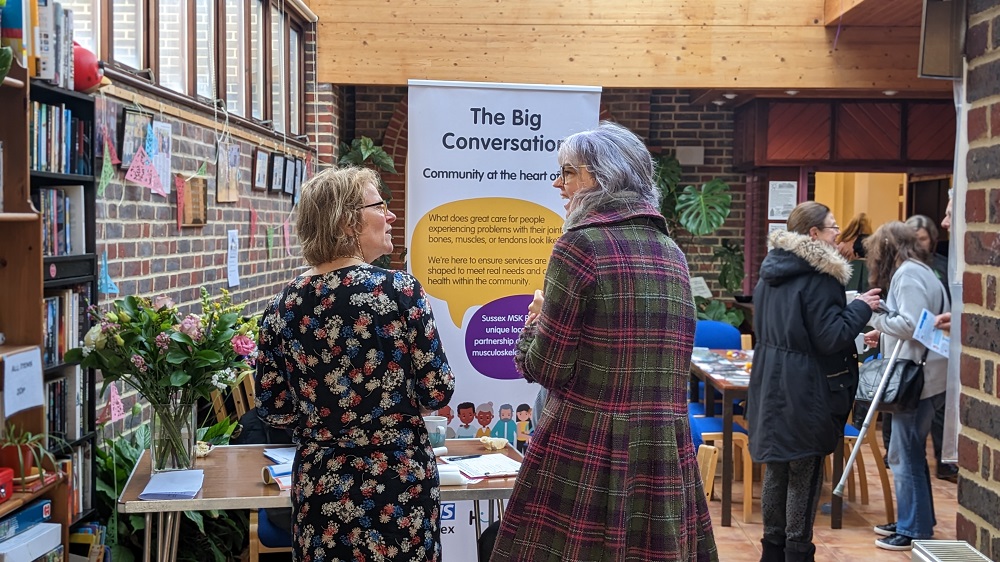
Making every contact count
Health Builders provide wrap-around care to people who access our service by welcoming them at CAD and Hub events, supporting them at Peer Support Groups and ensuring that all services and communications are delivered in the most appropriate ways.
By knowing our communities and understanding their needs through our “Big Conversations” and other activities, we can identify marginalised groups. We make every effort to engage with them to understand their specific needs. We try to make care feel accessible and safe for them.
The bottom line is that we need to make every contact count in the current health economy.
By Norman Webster – Health Builder.
Also of interest
Rethinking Our Health: starting with pain
We’ve been asking communities what really matters when they’re living with pain. In this update, we share what we heard, what surprised us, and how this learning is shaping a new three-part support offer for MSK pain that starts locally, builds on existing strengths, and is designed together.
Rethinking Pain: Insights from The Kings Fund and Here
What if pain wasn’t just something to manage, but a signal for change? The Kings Fund and Here explore how a “do with” approach can transform pain services – focusing on prevention, connection, and holistic support.
The post The Health Builder difference: Redefining patient involvement appeared first on Here.
]]>The post From Partner in Care to Lead Health Builder appeared first on Here.
]]>From Partner in Care to Lead Health Builder
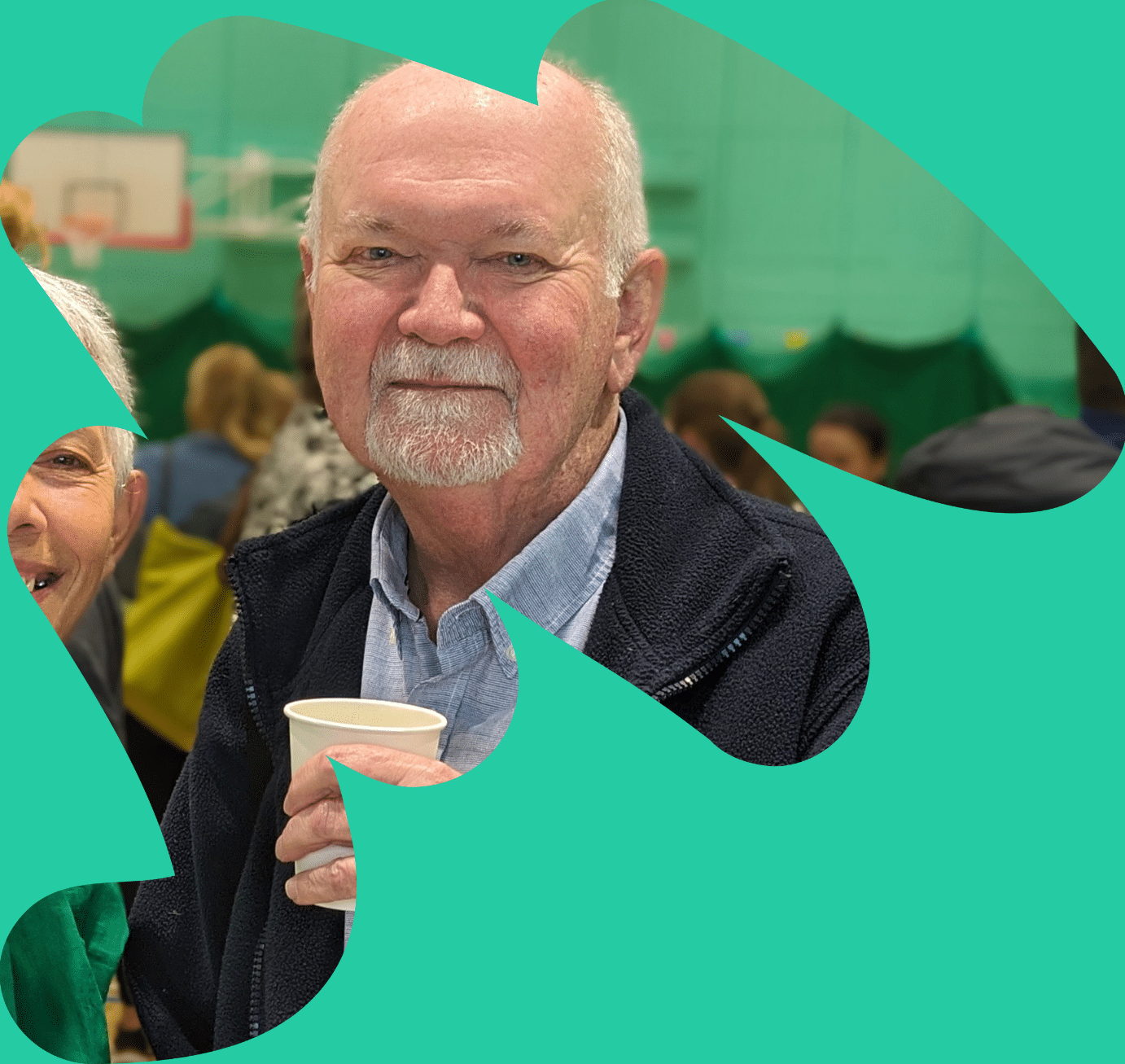
In Norman’s first blog piece he shared his story ‘From Patient to Partner’, 12 months on he shares the next the chapter about his new role as Lead Health Builder.
Sussex Musculoskeletal Partnership Central’s (SMSKPC) ethos of delivering innovative care is what initially attracted me to volunteering as a Patient Partner in the MSK service in 2015. I wanted others to experience that same life changing personalised care in their own lives.
I spent seven years volunteering in the role, working on service improvements to support people in managing their health needs. Last year I took on a more formal role as Lead Patient Partner.
Soon thereafter and in response to the NHS Long Term Plan, Patient Partners changed our title to Health Builders. We wanted people to see us as more than partners in existing models of care. We wanted to be involved in the drive towards building better health for all and in improvements in care for unwell people.
We want to support people in their journey to better health.
As Lead Health Builder, I support the organisation’s strategic development, governance and service improvements. Being in this position and recruiting others with MSK and wider health service experience, helps to ensure people’s lived experience is central to considerations and decisions of the leadership team and that this in turn permeates the culture of the organisation.

Through my position I can also hold the leadership team to account.

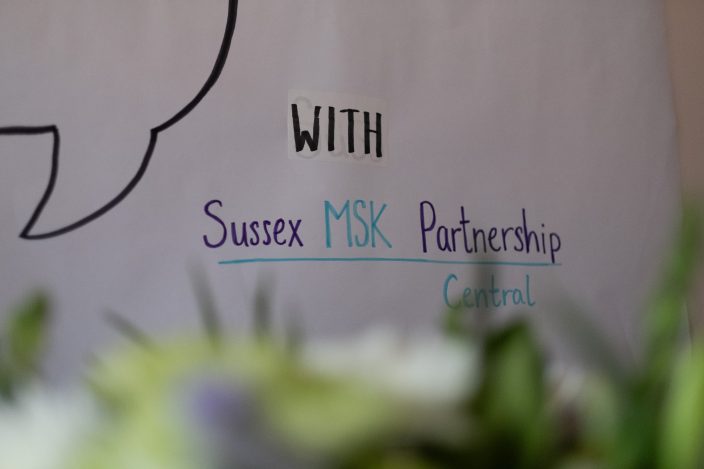
Through the work of the wider Health Builder group, we build links with communities, the voluntary sector as well as local and national government to focus on ‘what really matters’ to people.
The NHS Long Term Plan published last year, with strong implications of putting people at the heart of managing their own healthcare. This significant national policy change has to put people in control of their own health care journey, in partnership with clinical staff, other professionals and health focused charities.
The plan pledges to develop ‘fully integrated community-based health care’. A bold new order in which there is a greater focus on prevention of disease and promotion of good health, supported by traditional treatment which is both exciting and challenging.
We recognise the impacts of poor MSK health on general health and wellbeing.
With MSK disorders affecting up to 20 million people across the UK and accounting for the fourth largest NHS programme budget spend of £5 billion, in England alone, we know that they account for one of the biggest areas of workload of the health service. We also know that 40% of this workload is due to potentially treatable risk factors. Our mission is not simply about workload, but most importantly it’s about providing exceptional care for everyone. And we mean everyone.
Through innovations in care and operational processes, such as Community Appointment Days, self-referral, self-booking and electronic post-clinic letters to people and their GP’s, SMSKP has been able to deliver services in ways that really matter to people. This has led to greater efficiency and therefore less cost whilst improving care.
Community Appointment Days (CADs) are events where people referred to the service are met in a community setting, such as a leisure centre or community hall. They are provided with a booklet, or passport, into which they enter all the information they gather during the appointment. We put patient records in the hands of those using our service and we simply scan their document as they leave.
The CAD starts with a conversation with a clinical person to identify what really matters and advice and care are provided, or they can move on to a more in-depth examination and discussion about their condition. Thereafter a range of community support groups, health charities and local and national government organisations are on hand to provide advice and direction. A CAD really is a one stop shop.
Impacts of MSK pain and disability have significant negative effects on the quality of life of millions of people in the UK; 10.8 million working days are lost because of musculoskeletal conditions and they are associated with many comorbidities, including diabetes, depression, and obesity. MSK conditions are reported to affect 1 in 4 of the adult population in the UK and they account for over 20% of all presentations in primary care.

We simply must do things differently and I am proud our Health Builders are involved in developing innovations in health care.

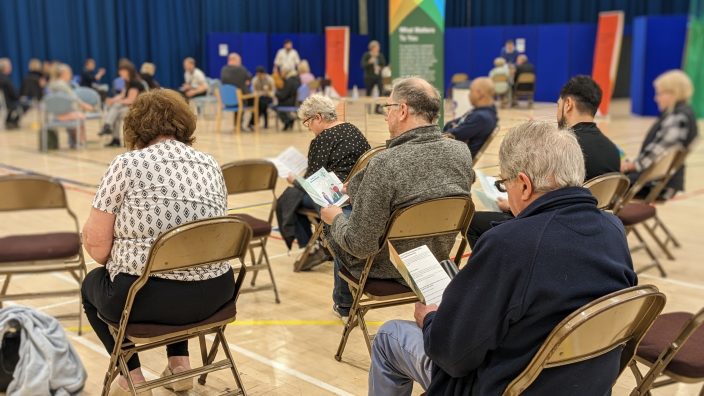
My days are spent in building networks with people, communities and both local and national organisations to work collaboratively to bring about change in the way health services are delivered. Being involved in decision making at the highest level within the organisation, as a service user, I am uniquely placed to have person to person conversations with those who are changing the way the system operates.
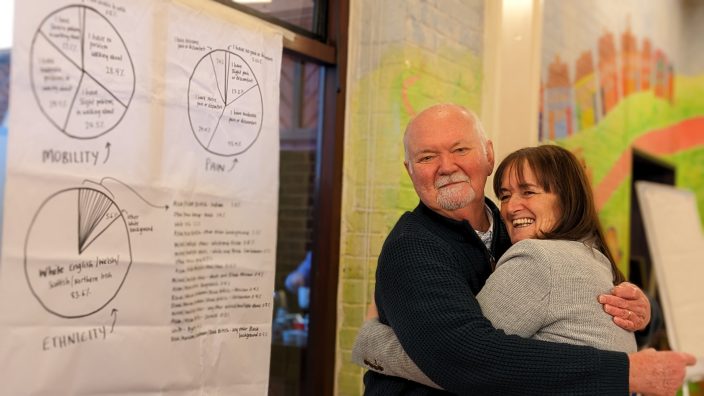
Being in a room together is key to how things can improve. It enables real meaningful conversation, person-to-person, human, conversations that get acted on. That is why I do this work – because I know being a Health Builder makes a difference. But I can’t do this alone. We need more people to be involved in this exciting and potentially life changing work for our Sussex communities. The new Major Conditions Strategy recognises MSK conditions along-side high blood pressure, cancer and other serious diseases. We want to ensure good MSK care works for our communities and that it is fit for the future. We are not alone. The NHS is changing, and we are at the forefront of this change.
We have shown the impact that personalised care has on people and the system. The transformative experience this has on those receiving and delivering care when the conversation shifts from ‘what’s the matter with you’ to ‘what matters to you’.
If you’d like to join us on this journey, please do get in touch: norman.webster1@nhs.net
Also of interest
Early Pain Support: Insights From our first Community Drop-In
As part of Rethinking Our Health, we hosted our first community pain drop-in — a chance for people to talk things through early, get reassurance, and feel more confident about managing pain. This blog shares what we learned, and why having the right conversation at the right time really matters.
New RCGP Report Highlights Hidden GP Workload
Like many of us delivering healthcare in collaboration with the NHS, hospices are experiencing the dilemma of not being an NHS organisation but needing to know our way around the landscape of data as if they are.
Data and Analytics: why we work with hospices
Like many of us delivering healthcare in collaboration with the NHS, hospices are experiencing the dilemma of not being an NHS organisation but needing to know our way around the landscape of data as if they are.
The post From Partner in Care to Lead Health Builder appeared first on Here.
]]>